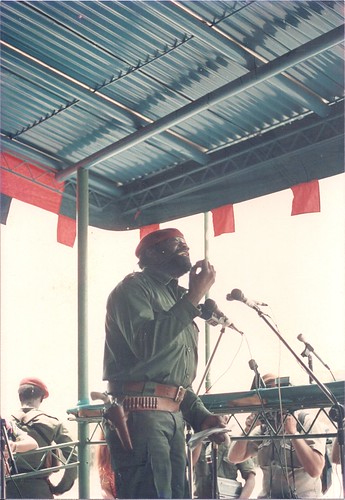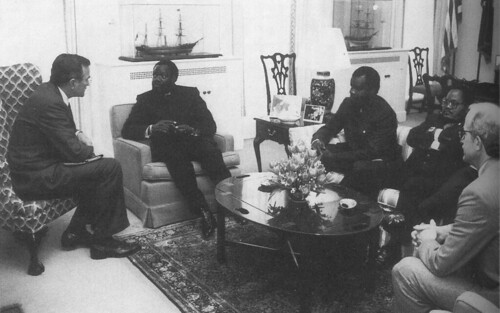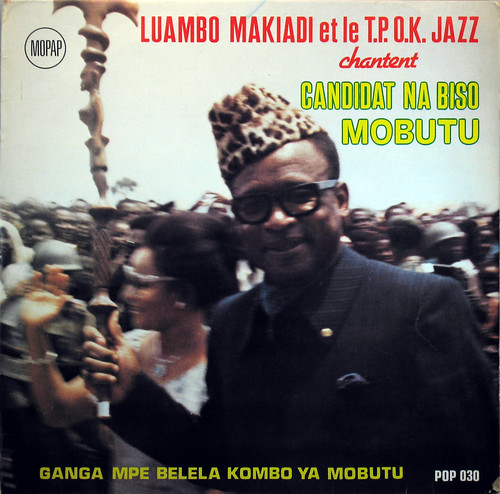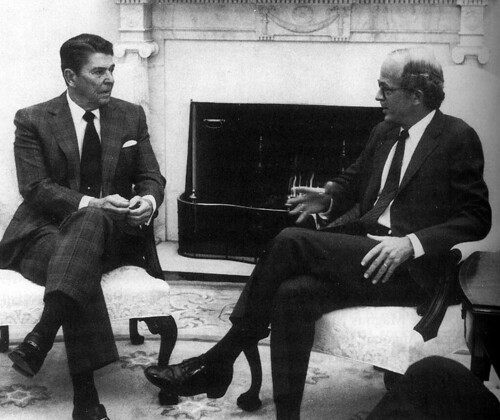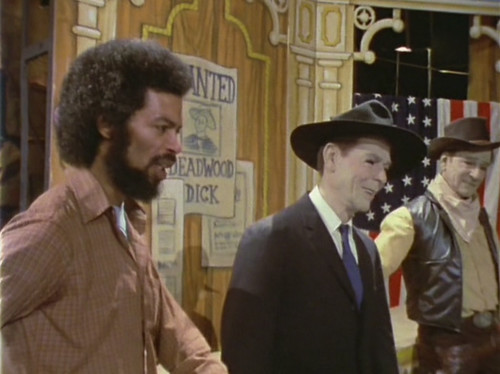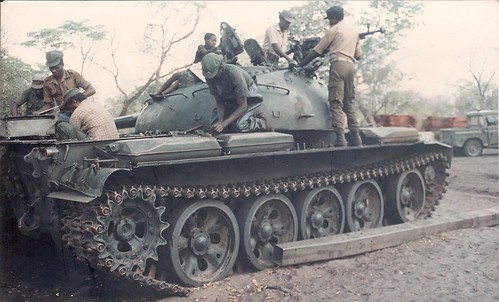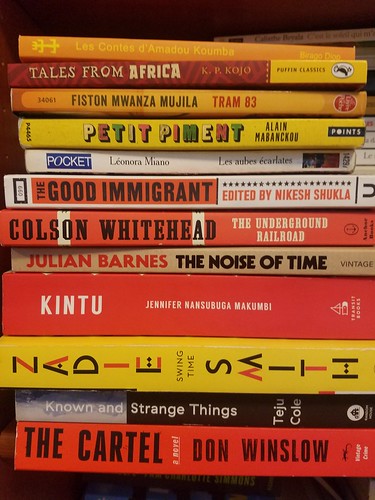Legacies (Munhango to Kennebunkport)
My proudest bit of publishing was an alternate history centered on Angola that someone gifted me late one night. "Here's to bad men" was the takeaway of that fevered dossier, a strand of the story of what historians now brand the "lost decades" in Africa and elsewhere. Stories are always unfinished, and the late KB Mensah shared some photos of Jonas Savimbi from his BBC archives that would have fleshed out that script. Also illuminating was Chester Crocker’s High Noon in Southern Africa (thank goodness for vanity, and used book stores). Its title and duel framing was inadvertently revealing; the outlook of cowboy diplomacy hard to resist. We have occasion to revisit the legacies of these political actors. If the prevailing view from Kennebunkport was of a cold-blooded, Cold War, on the ground in Munhango and Cuito Cuanavale, however, there were warm bodies that bore the brunt of abstractions: domino theories, linkage and containment. Collateral damage aside, the rest of us bear witness.
Apparently enough time has passed since the death of Jonas Savimbi that we are now urged to take a more nuanced view of his legacy. The caricature that was memorialized in the video game, Call of Duty: Black Ops II while apt for a rogues gallery of pulp fiction is said to be too simplistic.
His family even sued for defamation at the blunt portrayal:
A lawyer for Activision Blizzard, Etienne Kowalski, has rejected the claim, stating that the game represents Savimbi as a "good guy" – and that he is portrayed fairly, "for who he was... a character of Angolan history, a guerrilla chief who fought the MPLA".
The case was dismissed. The legacy remains contested.
The elder Bush in death will face similar contests despite the patrician image, New England privilege and attendant Yale legacy. Reputations need to be managed.
— Chester Crocker looked on as Vice President George Bush met with Jonas Savimbi in the Oval Office in January 1986 to discuss the United States' continued assistance to UNITA in the Angolan civil war.
Item: Joseph Mobutu (a.k.a. Mobutu Sese Seko amongst other honorifics) was the most prized CIA asset in Africa from the 1960s until his death in 1997. He was a friend to every CIA director in his lifetime.
Dig: The Bush and Mobutu families spent vacations together.
The late Barbara Bush would recall in her memoir the visits with "President Mobutu, who wears a leopard skin hat and carries a tribal stick. He is very flamboyant, but charming."
High Noon in Southern Africa makes a quite long winded defense of US foreign policy, arguing that it was all in service of "making peace in a rough neigbourhood". Diplomats often have do such things: putting lipstick on a pig or, to mix metaphors, making palatable the unsavoury. Still Crocker doth protest too much. It was never about clean hands, it was naked self interest. Being on the wrong side of history, supporting apartheid, propping up dictators will always be thrown back at one's face.
— Ronald Reagan and Chester Crocker at the Oval Office in November 1984 discussing the US policy to vigorously oppose sanctions on the South African apartheid regime.
While Ronald "Ray Gun" was the ostensible target of Gil Scott-Heron's classic 1981 track 'B' movie, there was also this observation:
'The screenplay will be adapted from the book called "Voodoo Economics" by George "Papa Doc" Bush.'
Prescient as always, our Gil, and then this:
... all of a sudden we have fallen prey to selective amnesia - remembering what we want to remember and forgetting what we choose to forget.'
Ah right, Papa Doc and the Tontons Macoutes that ruined Haiti. Lest we forget.
Squalid murder for the left of us, flowers to the right.
We've since learned of Donald Rumsfeld's notions that informed Bush the Younger's catastrophic reign:Reports that say that something hasn't happened are always interesting to me, because as we know, there are known knowns; there are things we know we know. We also know there are known unknowns; that is to say we know there are some things we do not know. But there are also unknown unknowns – the ones we don't know we don't know. And if one looks throughout the history of our country and other free countries, it is the latter category that tend to be the difficult ones
The obvious problem with the Rumsfeld taxonomy of knowledge is that it ignores the "unknown knowns", that is, the unconscious biases that underlie an issue. This willed blindspot is the working mechanism of selective amnesia. We are living in a moment where nostalgia is key and we're anesthetizing ourselves with transactional, cowboy politics.
There was a recent clarification which reminded me of the title of an episode of The Wire: moral midgetry.
America First!
The world is a very dangerous place!
... the purchase of military equipment from Boeing, Lockheed Martin, Raytheon and many other great U.S. defense contractors
... maybe he did and maybe he didn’t!
— Statement from President Donald J. Trump on Standing with Saudi Arabia, November 2018
Arms sales (and preferably ours).
The B movie theory: manifest destiny revisited as farce. The politics of rehabilitation, reputation scrubbing, and legacies of blood and sin.
Soundtrack for this note
- To know this by Alice Russell
- Cold blooded by Common
- Once bitten, twice shy by Vesta Williams
- Forget me nots by Patrice Rushen
- Blues Legacy by Milt Jackson & John Coltrane
- Kisua Ki Ngui Fuá by Artur Nunes


